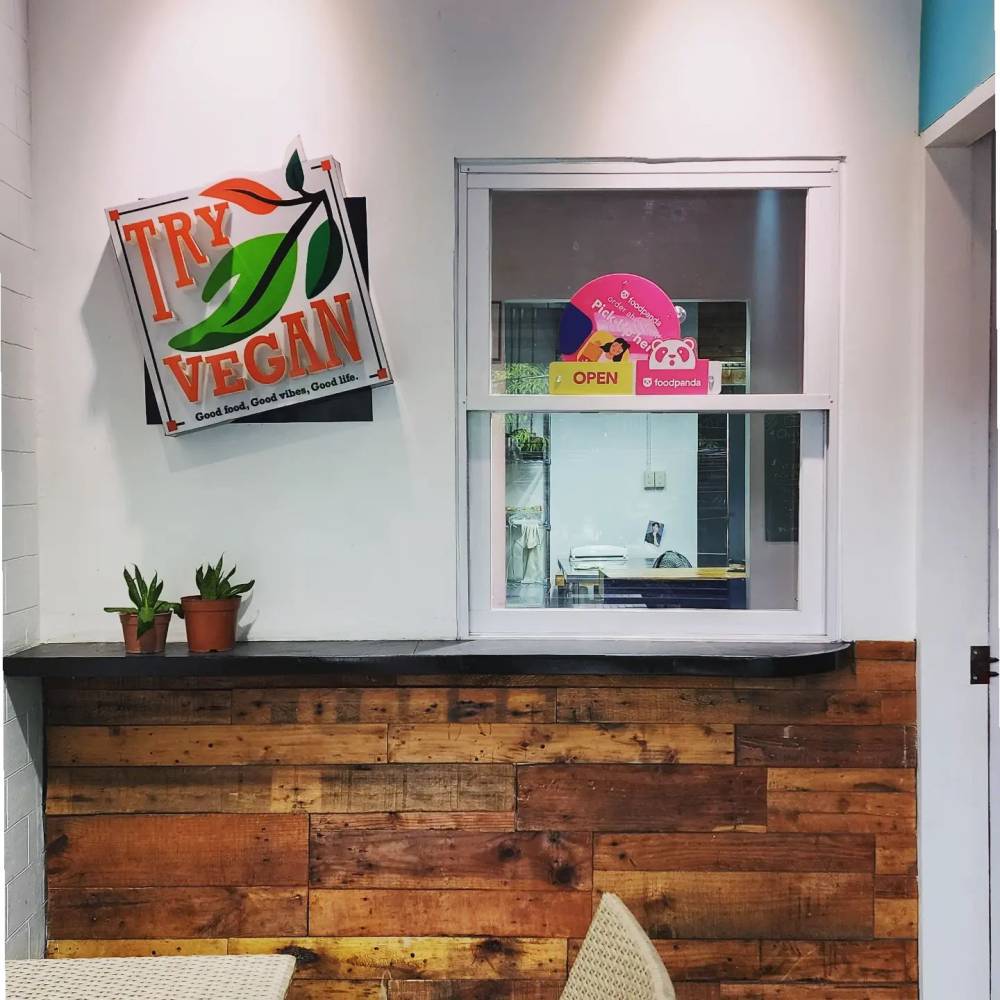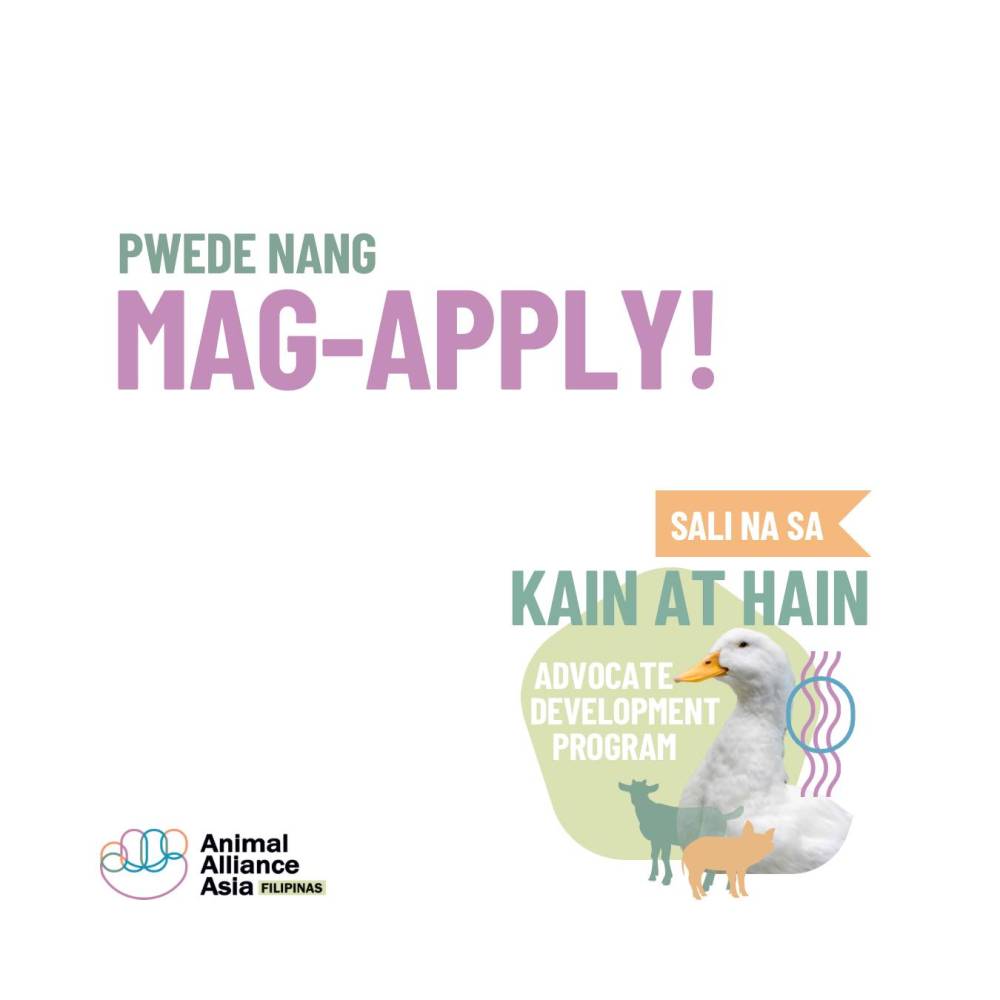How to run a plant-based café in the province

Aiming for wider accessibility of animal-free food, Animal Alliance Asia provides grants to help train vegan food entrepreneurs
Do you have a small food business in the province? Interested in serving a plant-based menu, but don’t know how to begin? No need to pay to enroll in a program; Animal Alliance Asia (AAA) can fund you.
If you live outside of Metro Manila and want to learn how to grow your vegan food business, become an AAA program scholar; you get a small grant and help animals and farmers, too.
In April, AAA is launching “Kain at Hain” (Eat and Serve) nationwide, an advocate development program that hopes to normalize veganism in provinces while supporting farmers in different regions. In this program, AAA will train seven vegans with food businesses in the province and give them a P10,000 grant (they get to keep whatever they don’t spend).
“Kain at Hain” participants will learn new skills and knowledge as they partner with mentors to develop plant-based menus. They will also help farmers in buying the produce that they will use in cooking. The program aims for animal-free food to become more acceptable and accessible to the masses.
Dr. Stef Dela Cruz developed this program as the Philippine coordinator of AAA. “We are receiving funding from different sources, all of which are invested in promoting animal justice,” she said. “AAA will
choose which local eateries (turo-turo) to work with to build a completely plant-based menu catering to locals. This effort will introduce veganism where there is the least resistance.”

Struggling businesses
Despite their best efforts, vegan food businesses are struggling, even closing. Try Vegan in Parañaque City had to close its physical café and grocery after four years and two locations.
Shroom Express also closed its brick-and-mortar store on
Pioneer St., Pasig City. Shirley’s Just Vegan in San Andres Bukid, Manila, also gave up its space but still offers goodies for delivery and pickup. Likewise, Silanganan Food Hub shut down its Caloocan shop and will be selling nonvegan items once it reopens in a new location.
In my travels to Bohol, Batangas and Cebu, I was surprised and saddened to see how the places we stay at don’t grow their food. In Bohol, they say their soil is shallow and mostly limestone, so they rely on produce from Mindanao. Even food items that are endemic to the region are not maximized, like peanuts, chocolate, ube and sweet potato (camote); everything else is “imported.”
Meanwhile, there is not enough affordable, nutritious and animal-free food for employees and workers who no longer have time to cook at home. Add to these growing concerns is the lack of support for our farmers.
Farmers remain undersupported despite being responsible for our nourishment. They will benefit from “Kain at Hain,” as the participants must work with farmers in their regions to develop their menus.
The “Kain at Hain” workshops will be held online so more people can join from different provinces. Registration is until March 31. To join, program participants must be able to commit eight hours per month from April to June. A webinar about the regional delicacies where the “Kain at Hain” scholars come from will be held in September.
Be one of the seven participants who will help make vegan food more accessible and widely accepted throughout the country. Slots are limited.
To join, sign up via this form; visit animalallianceasia.org/fellowship#philippines.

















